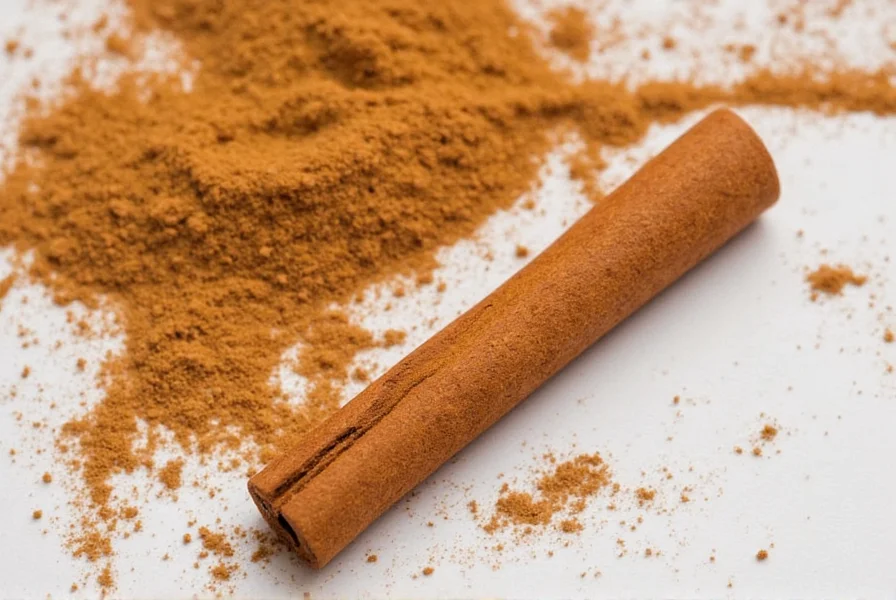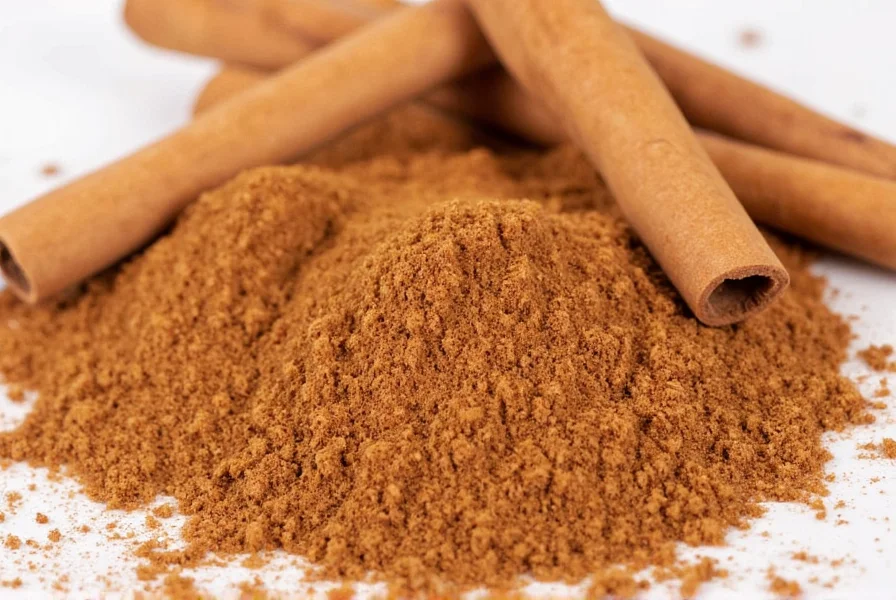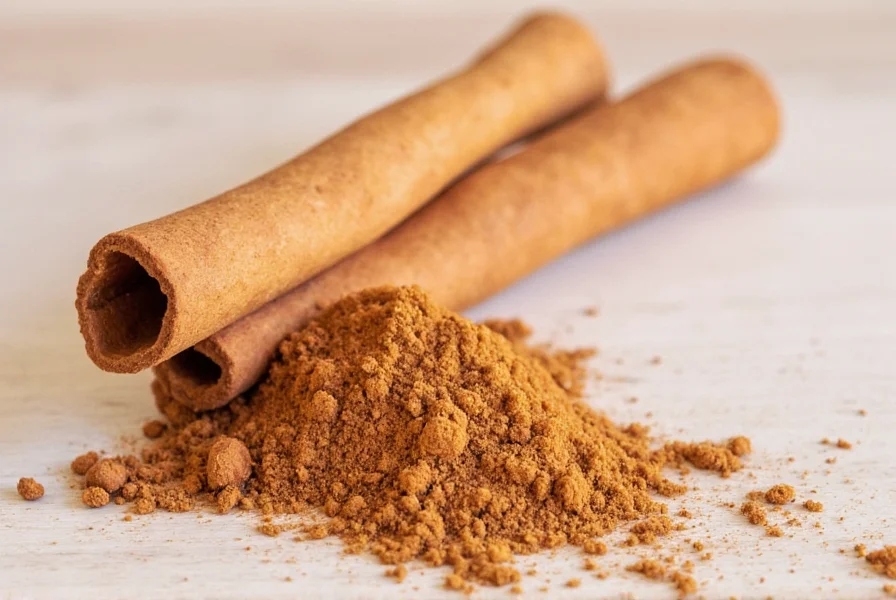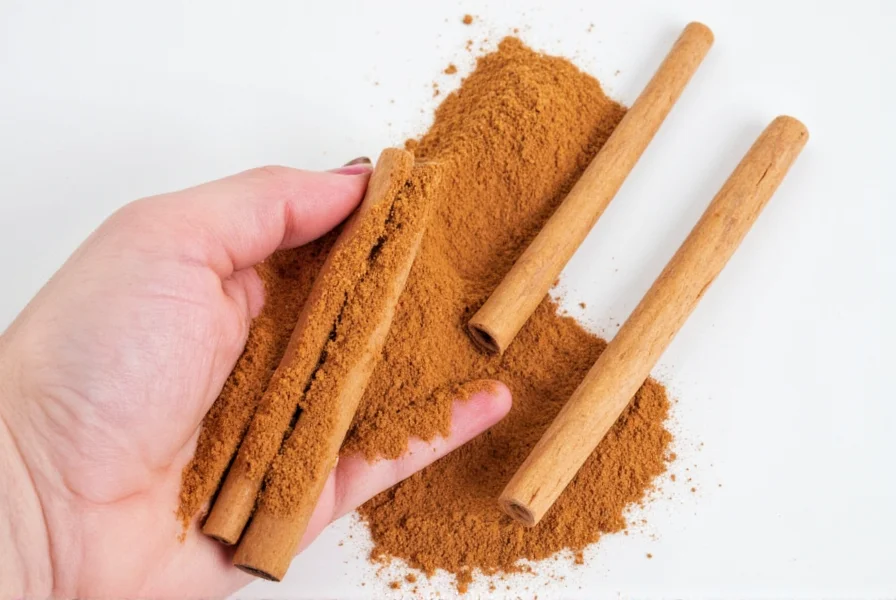1 cinnamon stick equals approximately ½ teaspoon of ground cinnamon. This conversion is essential for accurate baking and cooking when substituting between forms.
| Cinnamon Form | Equivalent Amount |
|---|---|
| 1 Cinnamon Stick (3 inches) | ½ Teaspoon Ground Cinnamon |
| 2 Cinnamon Sticks | 1 Teaspoon Ground Cinnamon |
| 3 Cinnamon Sticks | 1 ½ Teaspoons Ground Cinnamon |
This ratio works well in most recipes, especially baked goods and beverages. However, keep in mind that cinnamon sticks tend to infuse flavor slowly over time, so using ground cinnamon might result in a stronger, more immediate taste.
Visual Comparison: Stick vs. Ground
It's easy to think that a whole stick doesn’t equate to much ground spice, but looks can be deceiving. Let’s break it down visually:
- A standard 3-inch cinnamon stick weighs around 3–4 grams.
- One teaspoon of ground cinnamon weighs approximately 2.6 grams.
So when you grind a stick, you’re getting slightly more than half a teaspoon. This is why the ½ tsp = 1 stick formula is widely accepted among chefs and bakers alike.

Spice Storage Tips for Maximum Flavor
Whether you use cinnamon sticks or ground cinnamon, proper storage is key to preserving its rich aroma and potency. Here are some top tips:
- Use Airtight Containers: Oxygen is the enemy of spices. Store in sealed glass jars or spice tins.
- Keep It Cool & Dark: Avoid placing near the stove or in direct sunlight. A kitchen cabinet or drawer is ideal.
- Label Everything: Keep track of purchase dates. Ground cinnamon lasts about 2–3 years; sticks last up to 4 years.
- Freeze Ground Cinnamon: Want extra shelf life? Pop it in the freezer to preserve essential oils longer.

Top Cinnamon Picks for Your Kitchen
If you’re looking to stock up on quality cinnamon, here are some top-rated picks:
- Ceylon Cinnamon Sticks: Also known as "true cinnamon," it's less harsh and has a sweeter flavor.
- McCormick Ground Cinnamon: Affordable, reliable, and perfect for everyday baking.
- Frontier Co-op Organic Cinnamon Powder: Great for health-conscious cooks who want organic certified spice.

Buying Guide: Choosing the Right Cinnamon for You
Not all cinnamon is created equal. Here's a quick guide to help you choose:
| Type | Flavor Profile | Best For | Shelf Life |
|---|---|---|---|
| Ceylon | Mild, Sweet | Desserts, Tea | 3–4 Years |
| Cassia | Strong, Spicy | Stews, Baking | 2–3 Years |
Tip: If you plan to chew or steep your cinnamon sticks often, go for Ceylon. It contains less coumarin, which is harmful in large doses.
Cinnamon Usage Hacks That Will Change Your Life
Ready to level up your cinnamon game? Try these genius hacks:
- Add to Coffee: Sprinkle a dash in your cup for a natural sweetener-free boost.
- Make DIY Scented Sachets: Combine cinnamon sticks with cloves and citrus peels in a little pouch for a festive scent boost.
- Infuse Syrups & Oils: Use cinnamon sticks to make homemade syrups or infused olive oil for desserts or savory dishes.
- Prevent Fruit Browning: Sprinkle cinnamon on sliced apples or bananas to slow oxidation and add flavor.
- Enhance Savory Dishes: Don't limit cinnamon to sweets! Add a pinch to curries, stews, or spiced rice dishes for depth.

Frequently Asked Questions
How much ground cinnamon equals one stick?
One cinnamon stick (approximately 3 inches long) is equivalent to ½ teaspoon of ground cinnamon. This is the standard conversion used by chefs and bakers for recipe substitutions.
Can I substitute ground cinnamon for cinnamon sticks in recipes?
Yes, you can substitute ground cinnamon for cinnamon sticks using the ½ teaspoon = 1 stick ratio. However, keep in mind that ground cinnamon releases flavor more quickly, so the flavor profile might be slightly different (stronger and more immediate) than when using sticks which infuse flavor gradually.
What's the difference between Ceylon and Cassia cinnamon?
Ceylon cinnamon (often called "true cinnamon") has a milder, sweeter flavor and contains less coumarin (a compound that can be harmful in large quantities). Cassia cinnamon is more common, has a stronger, spicier flavor, and is typically less expensive. Ceylon is better for dishes where cinnamon is the star flavor or when using larger quantities, while Cassia works well for baking and robust recipes.
How should I store cinnamon to keep it fresh?
Store both cinnamon sticks and ground cinnamon in airtight containers away from heat and light. Ground cinnamon retains peak quality for 2-3 years, while sticks can last up to 4 years. For maximum shelf life, consider storing ground cinnamon in the freezer to preserve its essential oils longer.
Can I make my own ground cinnamon from sticks?
Yes! Simply place cinnamon sticks in a spice grinder, coffee grinder (dedicated to spices), or even crush them in a mortar and pestle. Freshly ground cinnamon will have a more vibrant flavor than pre-ground varieties. One 3-inch stick will yield approximately ½ teaspoon of freshly ground cinnamon.
Does the conversion ratio change for different cinnamon varieties?
The 1 stick = ½ teaspoon conversion ratio generally holds true across cinnamon varieties. However, flavor intensity can vary between Ceylon and Cassia cinnamon, so you may want to adjust to taste. Ceylon has a more delicate flavor, so you might use slightly more if substituting for Cassia.
Conclusion
Now that you know how much ground cinnamon equals one stick, you're ready to tackle any recipe with confidence—even if you only have ground cinnamon in your pantry.
From smart storage techniques to flavor-enhancing hacks, cinnamon is more versatile than you think. Whether you're a seasoned chef or a weekend baker, mastering this common spice can truly elevate your culinary creations.
So next time you reach for that jar of cinnamon powder, remember: a little goes a long way—and now you know exactly how far it goes!











 浙公网安备
33010002000092号
浙公网安备
33010002000092号 浙B2-20120091-4
浙B2-20120091-4